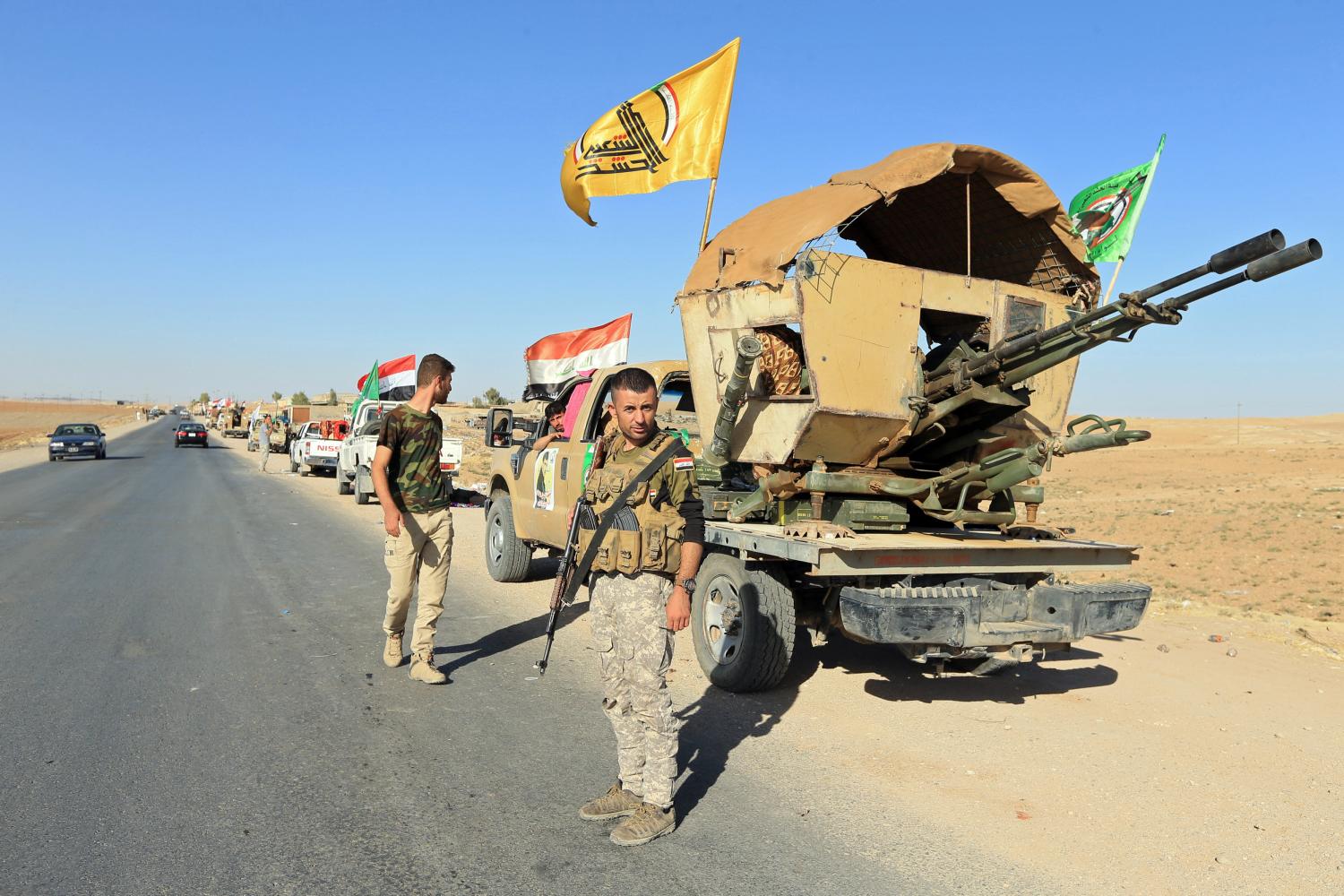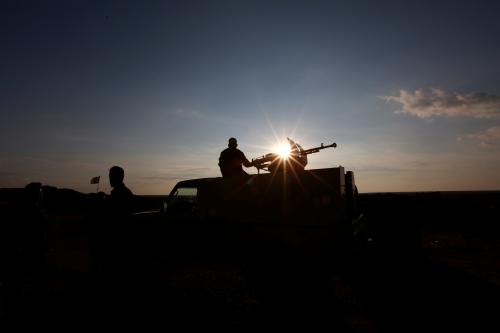Executive summary
Iraq has a decades-long tradition of extensive paramilitary forces. They are highly varied in their political affiliations, ideologies, and objectives, and some have historically been part of the state while others have battled against it. Although formed mostly along sectarian lines and around particular political and tribal leaders, today some 60 paramilitary groups have coalesced under an umbrella organization known as the Popular Mobilization Forces (PMF) or, in Arabic, Al-Hashd al-Shaabi.
These groups—which played a key role in defeating the Islamic State (ISIS) in Iraq, now pose their own challenges to the Iraqi state and society. They have deeply permeated the state and its still-developing political institutions. There is substantial risk that they will exploit their power, undermining progress of the Iraqi state toward being a more inclusive, equitable, and capacious provider of public goods and security.
The paramilitary groups are also enmeshed in the region’s geopolitical rivalries, and in any regional conflict, they could act as key proxies of local powers, particularly Iran—outcomes severely detrimental to the stability of Iraq and adverse to U.S. interests in the Middle East. Devising an effective policy for dealing with the paramilitary groups is thus fundamental to Iraq’s stability.
Various policies can be explored to chip at their power, mitigate their abuses, and enforce their accountability. Over time, such policies can reduce their power relative to Iraqi citizens and the Iraqi state. Strengthening and depoliticizing Iraqi institutions—such as the army, police, judiciary, and local administrations—will be vital, but that is an unlikely near-term prospect. And the current geopolitical environment in the Middle East, with tensions running high between United States and Iran on one hand and Iran and Saudi Arabia on the other, further severely complicate efforts to curtail the influence of the Hashd.
The implementation of any particular policy measure may be contingent on the emergence of more permissive conditions, but close consideration should be given to several policy avenues:
- Creating economic alternatives for individual Hashd fighters interested in leaving the security sector;
- Absorbing individual Hashd members into other state security institutions;
- Rechanneling payment flows and establishing uniform promotion criteria for all Iraqi security actors;
- Limiting the economic power and political capital of the Hashd;
- Improving service delivery and strengthening the state at the local level;
- Widening the separation of the Hashd from politics; and
- Reinforcing accountability through a sequential peel-off approach.
The Brookings Institution is committed to quality, independence, and impact.
We are supported by a diverse array of funders. In line with our values and policies, each Brookings publication represents the sole views of its author(s).





![U.S. Secretary of State Colin Powell holds up a vial that he described as one that could contain anthrax, during his presentation on [Iraq] to the U.N. Security Council, in New York February 5, 2003. [Powell tried to persuade a sceptical world that Iraq is concealing it's weapons of mass destruction and that force may be necessary to disarm it.]](https://www.brookings.edu/wp-content/uploads/2022/12/2003-02-05T120000Z_553139269_PBEAHUORSAU_RTRMADP_3_POWELL.jpg?quality=75&w=500)